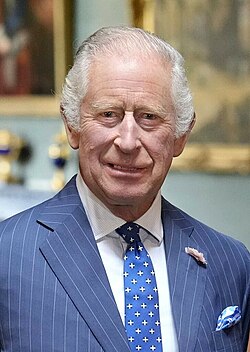This article needs additional citations for verification .(July 2016) |
The politics of Grenada takes place in a framework of a parliamentary representative democracy, whereby the prime minister is the head of government. Grenada is an independent Commonwealth realm. It is governed under a multi-party parliamentary system whose political and legal traditions closely follow those of the United Kingdom; it has a prime minister and a cabinet, and a bicameral Parliament with an elected House of Representatives and an appointed Senate. Executive power is exercised by the government. Legislative power is vested in both the government and parliament. Constitutional safeguards include freedom of speech, press, worship, motion, and association. Grenada is a member of the eastern Caribbean court system. The Judiciary is independent of the executive and the legislature. Jurisprudence is based on English common law.
Contents
- Executive branch
- Legislative branch
- Political parties and elections
- Judicial branch
- Administrative divisions
- International organization participation
- References
- External links
Citizens enjoy a wide range of civil and political rights guaranteed by the constitution. Grenada's constitution provides citizens with the right to change their government peacefully. Citizens exercise this right through periodic, free, and fair elections held on the basis of universal suffrage.
Grenada has two significant political parties, both moderate: the National Democratic Congress (liberal) and the New National Party (conservative). Minor parties include the up-and-coming Progress Party, which is led by Kerry Velon Simmons – one of the youngest active political leaders, the left-of-center Maurice Bishop Patriotic Movement (MBPM, organized by the pro-Bishop survivors of the October 1983 anti-Bishop coup) and the populist GULP of former Prime Minister Eric Gairy.
At the July 2008, election the NDC won a comfortable seven-seat majority over the government of former Prime Minister Keith Mitchell. New Prime Minister Tillman Thomas formed a government after narrowly losing by one seat to Mitchell's NNP in the November 2003 election. In elections held on February 19, 2013, Keith Mitchell's NNP swept all fifteen parliamentary seats. [1] This historic victory was a repeat of the 1999 elections in which the NNP also swept all 15 seats. Prime Minister Mitchell has the distinction as being the only Caribbean politician to sweep all seats on two occasions. Constitutionally, this development means that there is no official opposition in Parliament. As such, Governor General Carlye Glean, who is the titular head of state, will appoint 5 Senators to the Upper House, who will serve as the de facto opposition.
Security in Grenada is maintained by the 650 members of the Royal Grenada Police Force (RGPF), which includes an 80-member paramilitary Special Services Unit (SSU) and the 30-member Royal Grenada Coast Guard. The U.S. Army and the U.S. Coast Guard provide periodic training and material support for the SSU and the coast guard.



